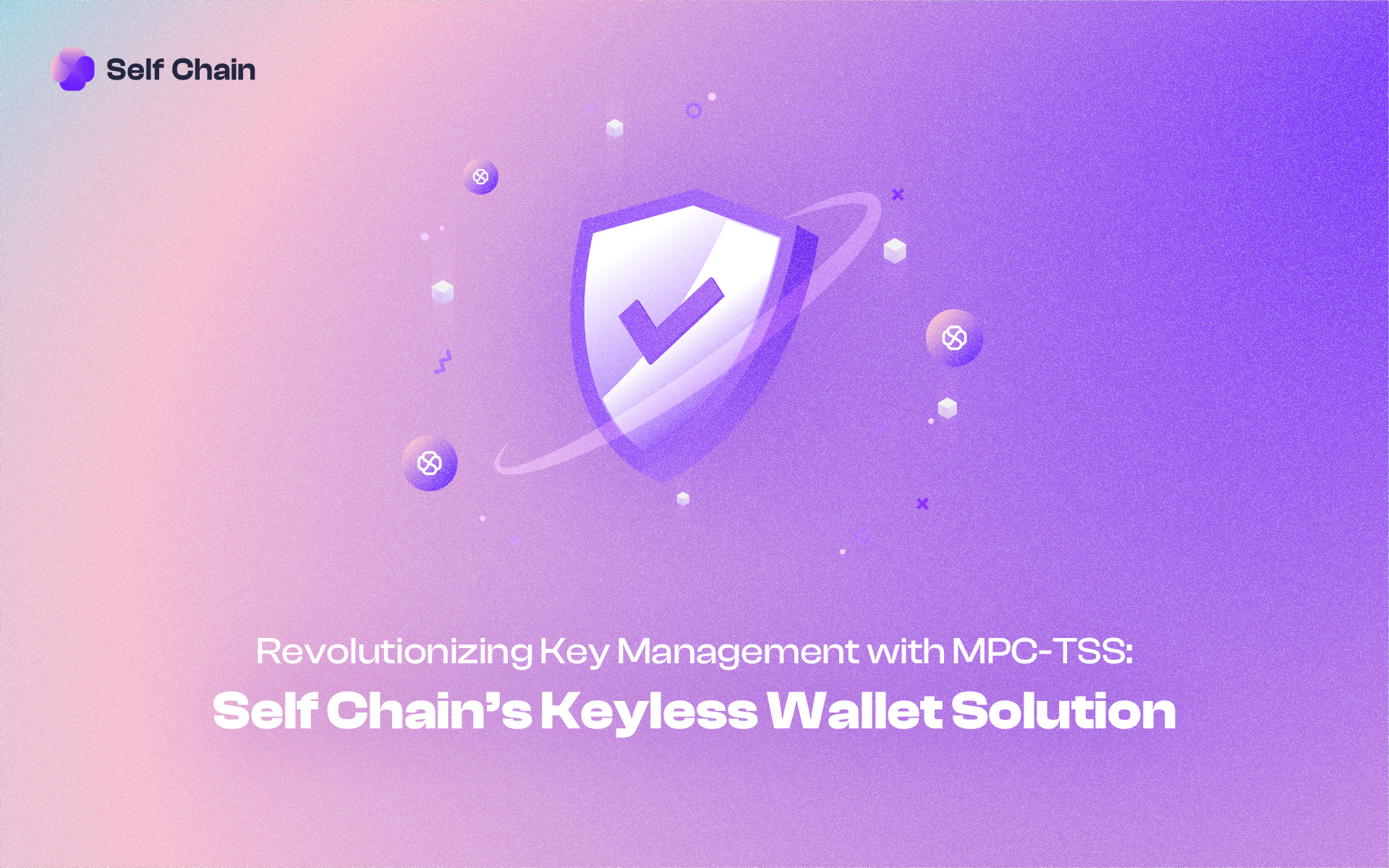Revolutionizing Key Management with MPC-TSS: Self Chain’s Keyless Wallet Solution

In the fast-evolving Web3 world, the safety of private keys has become a critical concern. Traditional wallet solutions relying on private keys are vulnerable to loss, theft, and hacking. Self Chain introduces a cutting-edge solution through its Keyless Wallet, leveraging MPC-TSS (Multi-Party Computation Threshold Signature Scheme) to ensure enhanced security and user convenience.
What is MPC-TSS and Why Does It Matter?
MPC-TSS fundamentally changes how cryptographic keys are managed. Unlike traditional wallets that store private keys in a single location, which can become a single point of failure, MPC-TSS divides sensitive keys into two or more shares, which are distributed across separate parties. These key shares never meet or combine, making it virtually impossible for attackers to compromise the entire key.
By separating the key shares and ensuring they never exist in one place, Self Chain’s MPC-TSS system eliminates the possibility of a single attack compromising the security of your assets. This method guarantees that even if one party is compromised, the security of the private key is maintained.
How Does MPC-TSS Work?
In an MPC-TSS system, key shares are generated randomly and stored independently by different parties. Each party holds a share of the private key but not the entire key. When a transaction needs to be signed, these parties collaborate without ever combining their shares, resulting in the creation of a valid digital signature.
The unique aspect of MPC-TSS is that all cryptographic operations are performed without revealing the actual key material. Key shares are regularly updated without altering the original key, adding an extra layer of protection.
Key Benefits of MPC-TSS:
- No Single Point of Failure: Key shares never combine, ensuring a secure distributed system.
- Enhanced Security: Sensitive cryptographic operations can be performed without revealing private keys.
- Adaptability: MPC-TSS is blockchain-agnostic, allowing seamless operations across multiple blockchain networks.
Self Chain takes this advanced security measure one step further by integrating it into its Keyless Wallet solution, providing a robust, user-friendly, and secure key management system that sets new industry standards. With this technology, users can fully control their crypto assets without the risk of losing private keys or depending on centralized recovery mechanisms.
About Self Chain
Self Chain is the first Modular Intent-Centric Access Layer1 blockchain and keyless wallet infrastructure service using MPC-TSS/AA for multi-chain Web3 access. The innovative system simplifies the user experience with its intent-focused approach, using LLM to interpret user intent and discover the most efficient paths.
Self Chain ensures that onboarding and recovery are effortless with keyless wallets that grant users complete self-custody over their assets. In addition, it provides automated rewards to dApps when they efficiently resolve user intent, further enhancing the user experience. Moreover, Self Chain incorporates Account Abstraction with MPC-TSS to provide secure signing and reduce transaction fees. It's a platform that redefines blockchain interaction, making it more secure and user-friendly for everyone.
In a world where blockchain technology is becoming increasingly essential, the user experience remains a critical factor in its adoption. Intents and Keyless Wallets are set to transform the landscape, making blockchain interactions more accessible, efficient, and secure. As we move forward, the blockchain industry has the opportunity to provide users with a seamless and enjoyable experience, unlocking the full potential of this groundbreaking technology.
